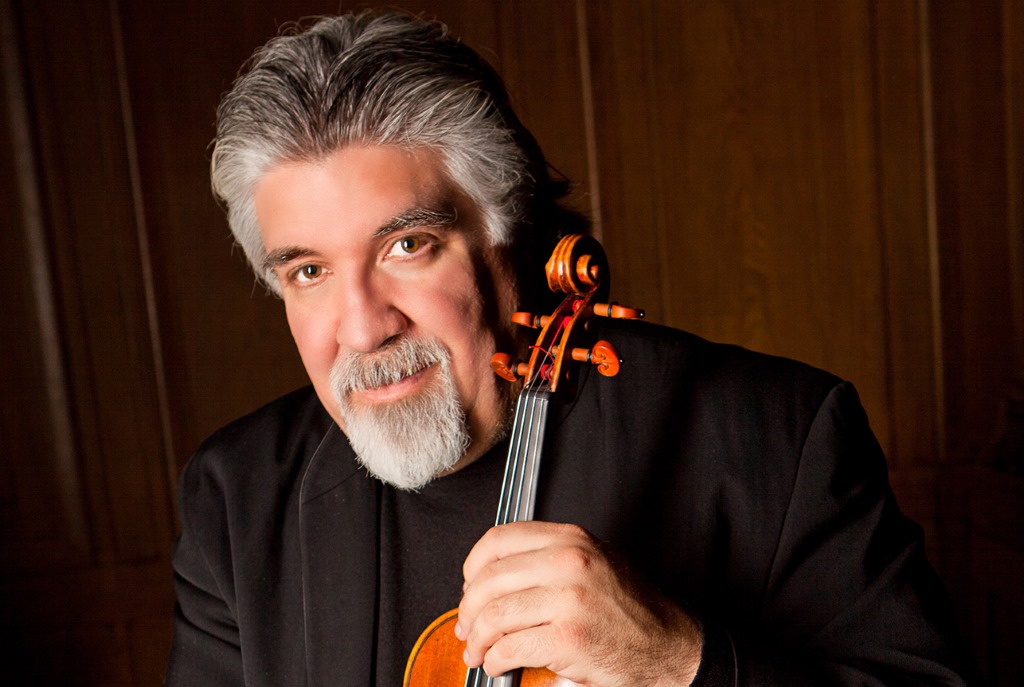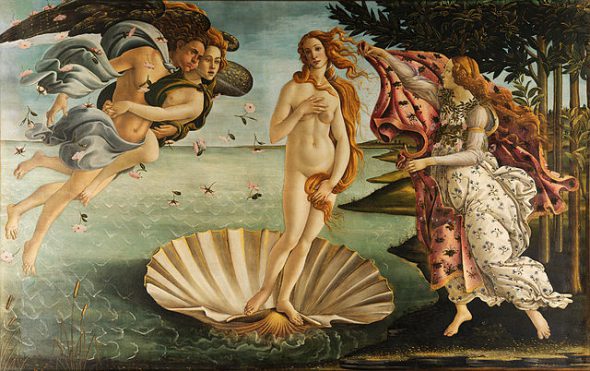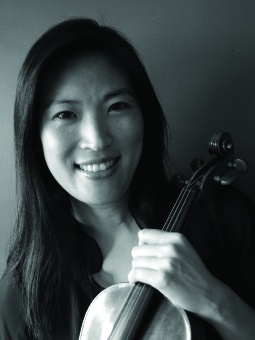Milwaukee Musaik Thinks Big
31 musicians perform, with guest conductor and violinist Andrés Cárdenas.
Milwaukee Musaik is completing its second year as a re-visioning of the Milwaukee Chamber Orchestra. In this model, the artists serve as management and offer several concerts a year as subsets of the group – as strings, as winds or in many unusual combinations. Next Monday evening, 31 artists, most also members of the Milwaukee Symphony Orchestra, will play as a full chamber orchestra.
Guest violinist Andrés Cárdenes will conduct the orchestra and participate as soloist in a Concertante by Mozart. Cárdenes won the Silver Medal in the 1982 Tchaikovsky International Violin Competition. He served many years as Concertmaster of the Pittsburgh Symphony Orchestra and for 11 years as conductor of the Pittsburgh Symphony Chamber Orchestra. Cárdenes has served on the faculties of Indiana University, the University of Utah, and University of Michigan, and currently holds the title of Distinguished Professor of Violin Studies at Carnegie Mellon University’s School of Music. As a student of Josef Gingold, Cárdenes is part of a direct line of violin teachers and students who trace their apprenticeships back to Arcangelo Correlli – one of the great Baroque violinists of the 17th century. This connection is important to musicians. You can trace the links in Wikipedia biographies, as the history of each violin virtuoso begins with recognition of their teachers and ends with a list of their renowned students.
Sascha Mandl, violinist and board president of Milwaukee Musaik, recognizes the “Franco-Belgian School of violin playing” as a great tradition. The result, he notes, is “extremely pure – a total mastery of the instrument in a bel-canto manner.”
The evening’s program has been carefully designed to incorporate a wide selection of instruments and styles with music by Rossini, Respighi, Korngold and Mozart.
Gioacchino Rossini wrote a set of string sonatas at age 12. He revised the four-player versions for a larger chamber ensemble at a later date. Milwaukee Musaik will play the ensemble edition of String Sonata No. 3 in C major (1804). Young Rossini’s friends did not include a violist. The revised set is also scored for only violins, cello and bass – offering a smooth lower sound. The music truly sings, presaging the romantic operas Rossini would later write. While acknowledging that the works are products of a developing student, critic Howard Smith finds these string sonatas appealing. “As sparkling, melodic, instantly appealing concert entertainment the effect of Rossini’s six string sonatas is never in question – all six works call for an ensemble of striking finesse, beauty, accuracy and outright virtuosity.”
Wind, horns, trumpet and other players join the strings (including violas) for a work by Ottorino Respighi, Trittico Botticelliano (1927). As with his Pines of Rome and other tone poems, this one sparkles with innovative scoring. Respighi has added a piano, harp, glockenspiel and celeste for additional color. Each movement reflects the subject of a Sandro Botticelli painting. The first, La Primavera, offers the shimmering sounds of an awakening Spring. The second, based on Botticelli’s Adoration of the Magi, incorporates variations on the Advent hymn “O Come, O Come Emanuel” within the movement. The last, The Birth of Venus, imagines Venus surfing gently across the waves, perched on her shell, until she lands at the shore.
Similar orchestration comes together for Erich W. Korngold‘s Suite to Shakespeare’s “Much Ado about Nothing”, Op. 11 (1920). A trombone joins the brass players and a harmonium joins harp, piano and glockenspiel. A timpani and other percussion are also added. The work was derived from incidental music Korngold wrote for a staging of the play. Where Respighi invokes an impression of a painting, Korngold brings a play to life. Critic Jeff Counts observes that “pieces of the set move so effortlessly from nostalgia to farce to fiery animation that it is easy to see the future Korngold at work, the Korngold with the gift for translating visual drama into lush and memorable sound.” Korngold went on to make a major contribution to the world of films with scores for The Adventures of Robin Hood and other movies.
A work by Wolfgang Amadeus Mozart will likely be the highlight of the evening. Strings, horns and oboes back two soloists in a form of double concerto – Sinfonia Concertante for Violin and Viola in E-flat Major, K. 364. Milwaukee Musaik Concertmaster Jeanyi Kim will be joined by Cárdenes (who will play viola). The form of this work features exquisite duets between violin and viola. Kim says that “the Mozart has always been one of my ‘desert island’ pieces.” She reflected on her experience playing in an concert Cárdenes conducted. “What I loved about playing under him was his approach to music-making–his meticulous attention to detail and insistence on serving the music, all the while with good humor and respect for the musicians. That same approach infuses his beautiful playing.”
Effective programming for a chamber orchestra allows individual players to stand out. This selection of works will serve that purpose well, which is good for audience and players alike.
Details for the concert: The concert begins at 7:30 p.m. next Monday March 13, at Wisconsin Lutheran College‘s Schwann Concert Hall – located at 8800 W Bluemound Rd, Milwaukee. (Free parking available in a new parking structure just east of the hall.) General admission tickets may be purchased at the door for $35, or in advance or through the Wisconsin Lutheran College box office: 414-443-8802.
The change in ticket price from $25 to $35 and the donation of time by performers makes this concert a “fund raiser” for the organization. Those who value this outlet for Milwaukee’s chamber players should pay additional attention to donation forms in the concert program or online to truly support this organization.
Preview
-
A Sacred Choir, 70 Voices Strong
 Dec 14th, 2025 by Martha Brown
Dec 14th, 2025 by Martha Brown
-
Prometheus Trio Goes Bohemian
 Dec 3rd, 2025 by Martha Brown
Dec 3rd, 2025 by Martha Brown
-
Present Music Offers New Choral Works
 Nov 20th, 2025 by Michael Barndt
Nov 20th, 2025 by Michael Barndt






















